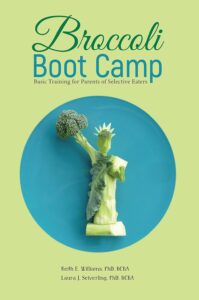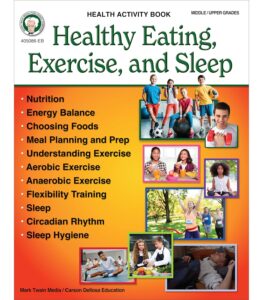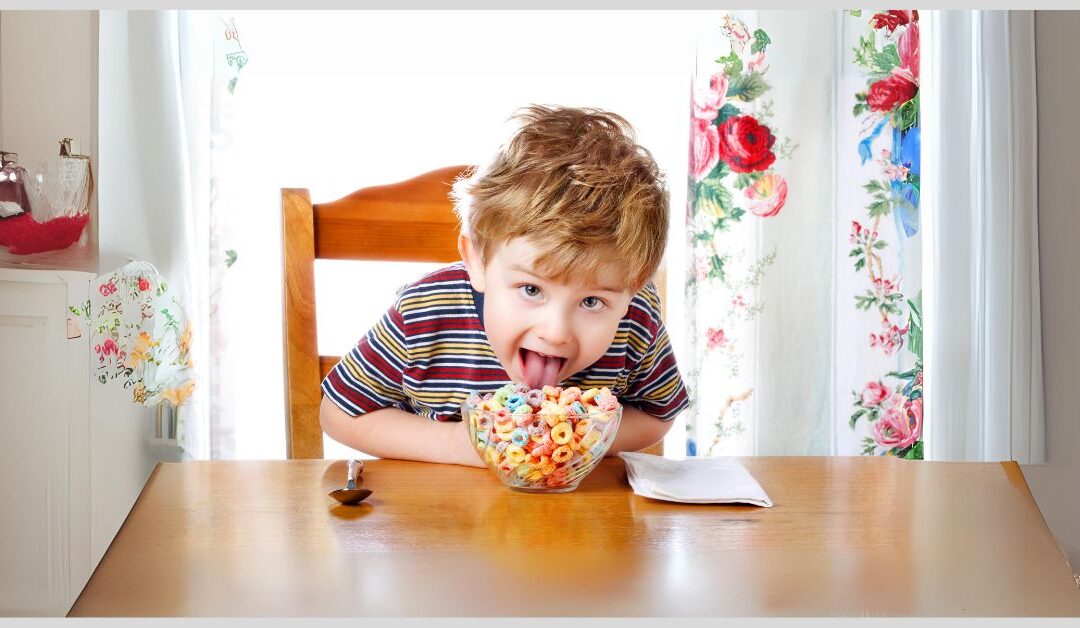As a parent of a child with ADHD and autism, you know it’s a misnomer that “excessive sugar” causes ADHD. Yet, you hear a lot of noise about ADHD and food. So are there specific foods your child should avoid to reduce the risk of making their hyperactivity and ADHD symptoms worse?
Is there a connection between food and ADHD?
Brain anatomy, genetics, head injuries and even certain problems during pregnancy can result in a person having ADHD. The child’s diet does not cause ADHD.
Studies have shown that a child eating too much sugar or any specific foods or additives does not cause or significantly contribute to their ADHD. In fact, anyone with ADHD needs a healthy diet like we all do, and eating well will enhance their overall well-being and health. Ensuring that your child is getting the nutrients and minerals they need through their diet is very important for their development and brain health.
Are there certain foods your child should avoid if they have ADHD?

Studies are inconclusive about eliminating a specific food or additive to improve ADHD symptoms such as hyperactivity. However, some studies have shown that eliminating foods that your child is sensitive to from their diet has shown promise for improved behavior and cognitive function as well as decreasing the triggers for ADHD (Curr Nutr Rep. 2023; 12(3): 383–394.)
What foods tend to have the highest sensitivities? Some common ones can include:
- Dairy products, especially milk
- Eggs
- Tomatoes
- Foods containing artificial food dyes
- Chocolate
- Oranges
- Grapes
- Beans
- Foods containing gluten
- Wheat (in addition to it having gluten)
- Corn
- Soy
If your child’s behavior seems worse after eating any of these foods or their gastrointestinal system doesn’t like these foods, try eliminating them from your child’s diet. If your child improves, it may be worth avoiding that food as much as you can.
My son J doesn’t have any food sensitivities, but he is allergic to peanuts and another couple of nuts. That has been difficult to maneuver because so many foods have at least traces of nuts. Thankfully, I’ve learned to navigate the labels on food items and keep them out of our diet. That would be the same though for a food sensitivity because as a parent we have to look at the ingredients carefully when buying food for our kids and families.
Also, when J was younger, I knew he was sensitive to eating too much sugar. His behavior would worsen with the “sugar high,” and then he would really crash when his glucose level would go back down. However, I don’t believe that sugar was one of the foods that affected his ADHD. I think he was more sensitive to the glucose spikes from too much sugar, so I learned to minimize it.
What foods should you encourage your child with ADHD to eat?

Like I mentioned before, those with ADHD need a healthy, balanced diet like we all do. If you are looking for a good guide, I really like MyPlate from the USDA. J’s nutritionist introduced us to this resource, and it has been really helpful for me, both for myself and as a parent with planning family meals and snacks.
MyPlate has a kids page that even includes games and other educational material to teach your child about nutrition.
We all need a variety of fruits, vegetables, grains, protein and dairy (unless you or your child has dairy food sensitivities) each day. The thing I like about MyPlate is that you can use their online calculator to put in your or your child’s age, weight, height and activity level to get the suggested number of calories you need daily plus a guide on the amount of food needed in each food group.
What has been your experience with foods and ADHD with your child? What advice would you give other parents? Leave a comment so that we can all share and encourage each other on this journey.
Additional resources
If you are interested in more information about helping your autistic child with ADHD eat well, check out these.
Smart Foods for ADHD and Brain Health (affiliate link)
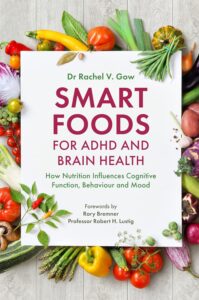
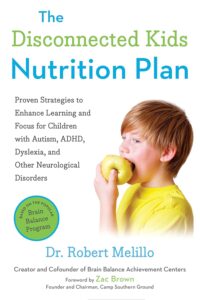
Ultimate Kids’ Guide to Being Super Healthy: What You Need To Know About Nutrition, Exercise, Sleep, Hygiene, Stress, Screen Time, and More (affiliate link)
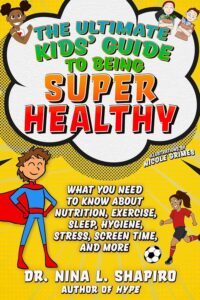
Broccoli Boot Camp: Basic Training for Parents of Selective Eaters (affiliate link)
